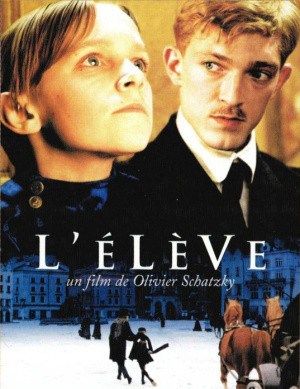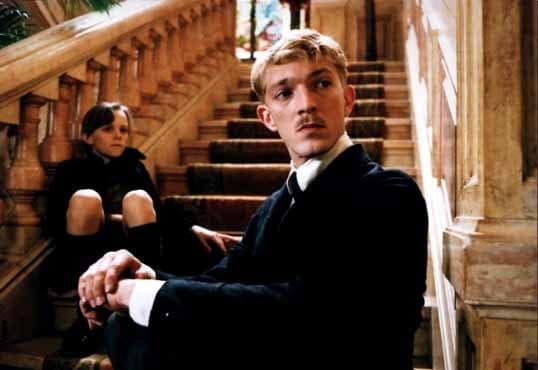“My love is deep. The more I give to thee the more I have.”
 Beautiful like a fairy tale and consequently filled with emotions and magic – Olivier Schatzky`s 1996 adaptation of the classical short story by Henry James, The Pupil, allows its viewers to see, sense and experience the warmth of human emotions.
Beautiful like a fairy tale and consequently filled with emotions and magic – Olivier Schatzky`s 1996 adaptation of the classical short story by Henry James, The Pupil, allows its viewers to see, sense and experience the warmth of human emotions.
Morgan (Caspar Salmon), a sensible 12-year-old boy who grows up surrounded by fake pretenses of richness and royalty (superficial, selfish, and narcissistic) living off society, finds a true friend and soul mate in Julien (Vincent Cassel), a young man hired to tutor him.
When initially accepting the tutor position for the teenaged Morgan, Julien has set an expectation of monetary compensation that the parents have agreed to meet. Soon, it became clear that the family could not provide payment for the tutoring services despite their earlier promises. The tutor becomes nervous, but having spent time in the house, the boy`s mother addresses him in the following manner:
“You will stay with us. You know very well. You are too attached to Morgan.”
From this moment on, a decision is to be made…
The production design impresses with its lavish decors and costumes, which, combined with the beautiful musical score comprised of classical music and two precious treble performances, contributes a great deal to both the authentic feel of the film and the sense of magical realism that overwhelms the minds of its audiences.

In all fairness, some dialogue is filled with philosophy and life truths. While they don’t seem out of place, even considering the tender age of the film’s young protagonist, one may get a bit lost in the complexity of the narrative and only appreciate it fully upon consecutive viewings, which would allow the viewer to capture all of its nuances.
Having read the short story on which the film is based, I can argue that the film (thanks to the resourceful acting and solid approach to storytelling) makes the story much more comprehensible than does the work it is based on – essentially improving on it – which one can rarely say for most cinematic adaptations of classical literature.
The most significant achievement of the director and the actors is that they manage to provoke a genuine concern about the fate of the film’s protagonists. Wise-beyond-their-year’s characters can be annoying, and it’s intriguing to observe how one opens up to the particularity of the characters as the story develops. This is character development at its best or, to say it with the words of young Morgan: “Antipathy is unintentional, so is sympathy”.

The Coming-of-Age nuances of the film’s narrative are strongly related to the experiences of the young Morgan—living in an unforgiving, harsh environment—and those of his tutor, who will never be the same, having met Morgan and has learned on his own that life requires sacrifices. Julien also knows that when encountering the need for sacrifice, one should not hesitate to make it.
The finale follows the traditions of other great works written in the same period, such as the novel Misunderstood (1869) by the English author Florence Montgomery or Roger Peyrefitte’s This Special Friendship (1964). Its heart-wrenching ending is enhanced by the beautiful song that plays when the credits start to roll.
The Pupil (L’élève—original title) is a cinematic masterpiece well worth your time, and I highly recommend it.
http://youtu.be/u-2sQjYyLdc